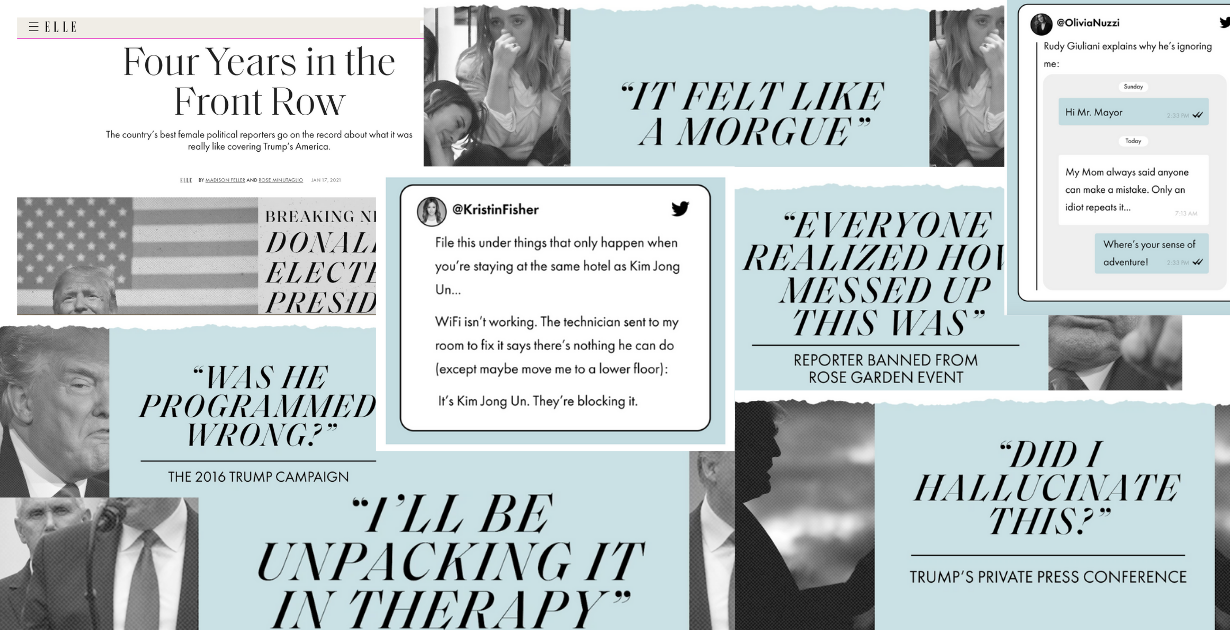The Week Kick-off: A whole new world
At the time of writing, the Inauguration of 46th US President Joe Biden, had passed without hitch. Now – a few executive orders on climate change, travel bans, etc. notwithstanding – tech regulation is likely to be pretty high up the new President’s priority list. So just what can we expect for social in the immediate future? And what other trends are making the headlines as we kick-off another new week in media?
A whole new world
Much has understandably been written about the need for greater media tech regulation over the past week – it was after all, platforms like Facebook and Twitter that helped to create the White House mess that the new incumbents now find themselves having to clean-up. One particularly interesting point that we can pick up from the detritus, is the extent to which the events that have taken place in the US over the past few weeks, have reminded us that we live in a digitally-connected world.
The hands of President Joe Biden and Vice President Kamala Harris had not yet hit their Inauguration Bibles, when last Wednesday the European Union’s (EU) President of the European Commission (EC), Ursula von der Leyen, called upon the new administration to help enforce greater regulation of social media companies. Referring to the assault on the US Capitol on 6 January, she said: “That is what happens when hate speech and fake news spread like wildfire through digital media. They become a danger to democracy.”
A day later, The Verge reported that Twitter had locked out China’s US embassy, after it posted a dehumanising tweet about the Uyghur population. It’s a timely reminder that while many of these platforms originated in the US, their content now carries real world repercussions. Over the coming months, it will be particularly interesting to see how tech regulation plays into geo-political issues, and vice versa.
For media’s part…
… by which we refer to the more traditional sectors of print, television, and the online press, it too appears to have entered into something of a period of self-scrutiny in recent days, analysing the role that journalism has and will continue to play in shaping macro socio-political trends. Last Wednesday’s piece by the Washington Post’s Global Opinions Editor, Karen Attiah, offers a strong example of this. Just prior to the US Inauguration, some of the country’s best female political reporters went on record, to talk to Elle about what it was really like covering Trump’s America.

uLesson
Just as events emanating from the US in recent days have highlighted the fact that we live in a digitally connected world, edtech start-up uLesson reminds us that Silicon Valley is not the only place on the planet where tech innovation occurs. The Nigerian firm uses SD cards as a low-bandwidth way to deliver educational content across Africa, and was reported last week by TechCrunch to have secured an additional US $7.5m of funding.
We looked in last week’s kick-off at how in the UK, the BBC is extending its educational programme onto mainstream television, to help home school pupils during lockdown. uLesson offers another great example – in this case in the form of a start-up – of how certain media offerings can not only survive, but also flourish, during times of uncertainty.
The remarkable bounceback of New Zealand’s magazines
On 16 January, The Guardian ran an in-depth piece about the return to prominence of the magazine sector in New Zealand, spurred in part by the rebirth of the Bauer catalogue in the country: “Not only have Bauer magazines been brought back to life under new ownership, but also new titles have been launched – reflecting a flurry of investment and innovation in New Zealand media precipitated by the pandemic,” wrote Elle Hunt.
In response to the story, FIPP CEO James Hewes tweeted: “A fantastic positive outcome for New Zealand magazines, after Bauer’s withdrawal last year. Glad to see Metro magazine, North & South, The Listner, and others thriving!”
One to watch
Staying in Australaisa, and looking back to the increasingly symbiotic relationship that media-tech and geo-politics is likely to have this year… Google’s relationship with the traditional publishing industry continues to appear – interesting – as we move into 2021.
On Friday, the BBC reported that Google “has threatened to remove its search engine from Australia over the nation’s attempt to make the tech giant share royalties with news publishers.” It’s a highly unusual move, which the BBC’s North America Technology Reporter, James Clayton, says is an indication that Google is “worried” about the new laws that the country intends to impose.
Earlier in the week, Bloomberg reported that Google is now offering to pay some European publications for their content, suggesting that Australia is getting the stick, while Europe is being offered the carrot. Certainly France would appear to have an appetite for this, with an association of French publishers having reportedly already struck a deal with the tech giant.
Just as the future of Facebook and Twitter regulation will have wider repercussions for the interpretation of free speech around the world, so too further regulation of Google – be that in the form of self-regulation through the industry or government intervention – is likely to have a massive effect on the free press that remains the embodiment of it.
For FIPP’s part…
In this week’s main feature, FIPP Journalist, Pierre de Villiers looks at how the Covid-19 crisis has underlined why it’s crucial for media organisations to have a diverse workforce. We’ll also be launching a new report during the latest FIPP Insider Webinar this coming Thursday 28 January, looking at ‘The State of Content and Commerce’ in the important ecommerce sector of the industry. Finally, learn how to generate new business right now with this Closing Sales Opportunities course, part of the FIPP Training Hub.









